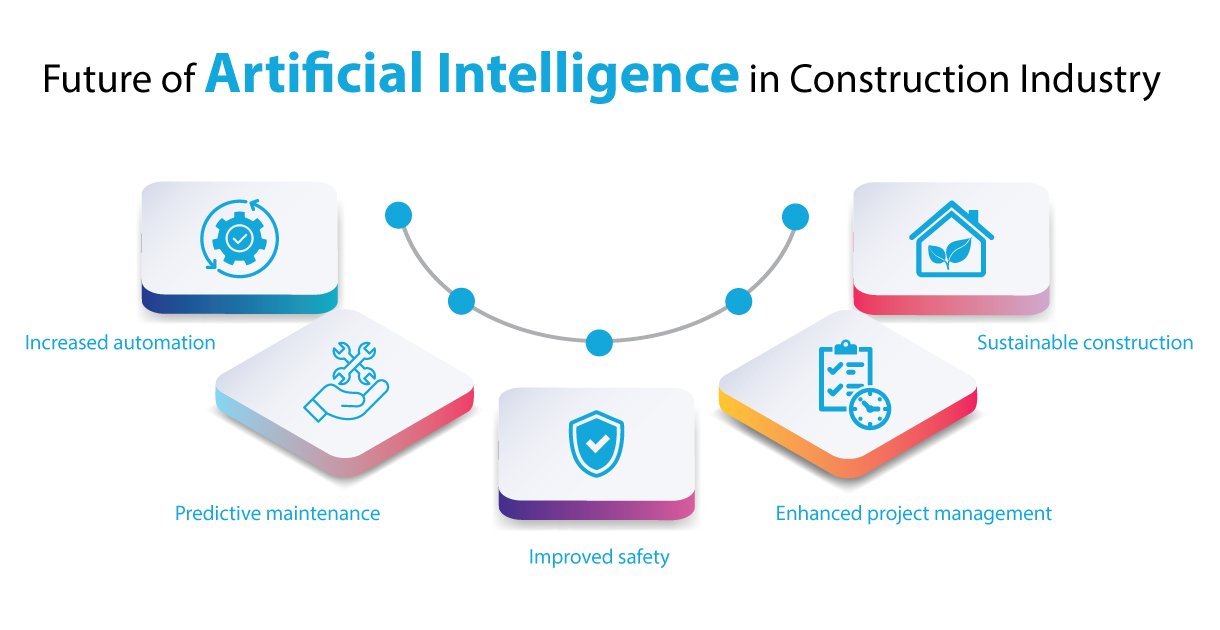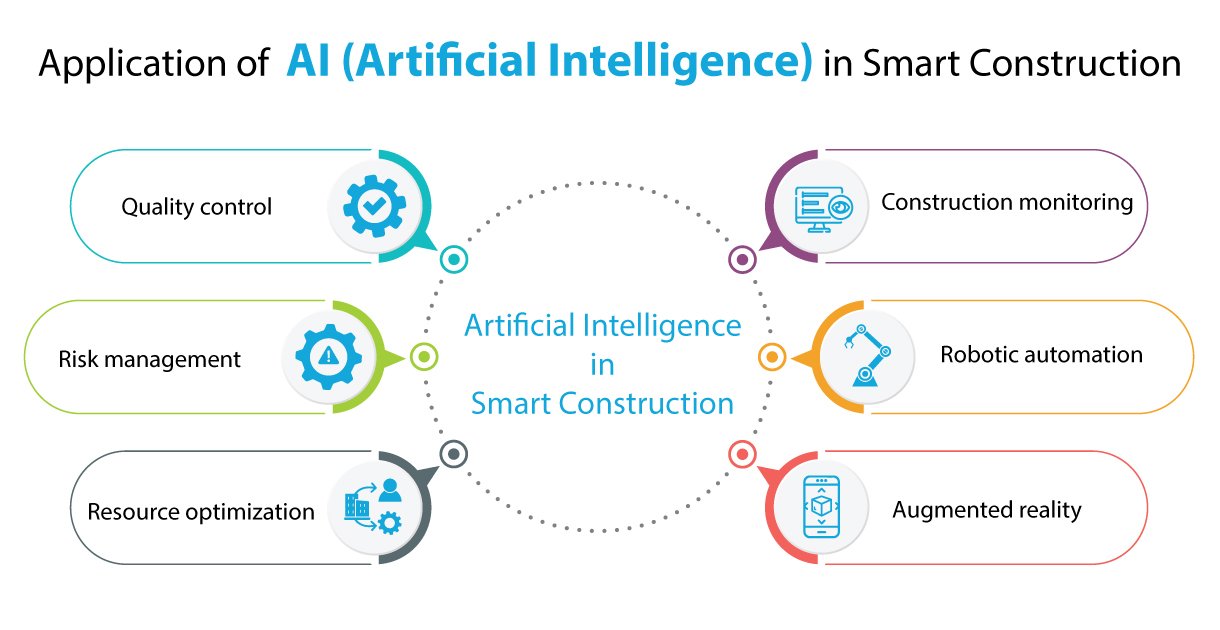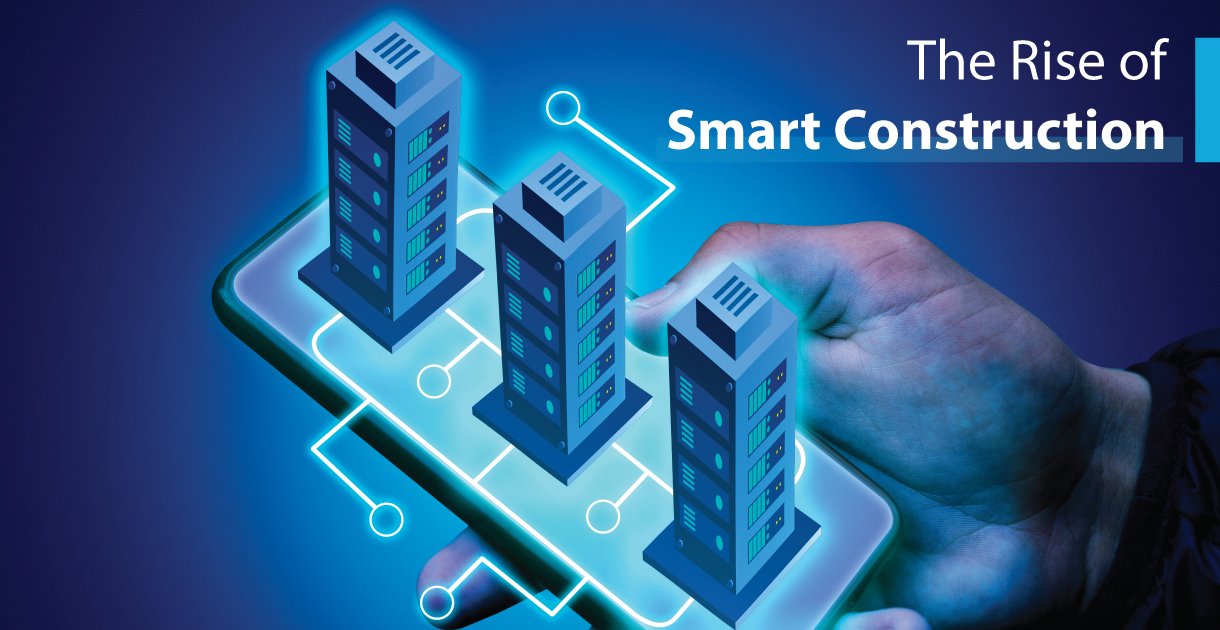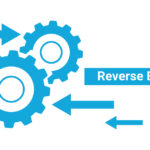The construction industry is often known for its slow adoption of new technologies, but that is rapidly changing with the rise of smart construction. Artificial intelligence (AI) is quickly becoming a game-changer in the industry, as it enables companies to optimize operations, reduce costs, and increase productivity. In this blog post, we’ll explore the ways in which AI is revolutionizing the construction industry, and how companies are using it to improve everything from project management to safety. So, if you’re interested in learning more about the impact of Artificial Intelligence in smart construction, keep reading!
What is meant by Artificial Intelligence in Construction Industry?
Artificial intelligence in the construction industry refers to the application of advanced computing techniques, such as machine learning and robotics, to automate, streamline, and optimize various construction processes. Smart construction is a term used to describe the implementation of digital technologies, including AI, to improve the efficiency and productivity of construction projects.
Robotics in construction involves the use of automated machines to perform tasks such as bricklaying and excavation, while machine learning algorithms can be used to analyze data and optimize construction processes. Augmented reality is another technology that is being used in the construction industry, allowing workers to overlay virtual data onto the physical world to improve accuracy and efficiency. Together, these technologies are transforming the way construction projects are planned, executed, and maintained.
The Evolution of Artificial Intelligence in Construction Industry
The construction industry has seen a significant evolution in the use of artificial intelligence (AI) over the years. From simple automation to sophisticated algorithms, AI is now integrated into many aspects of construction, including smart construction, robotics, machine learning, and augmented reality. Smart construction uses sensors and real-time data analysis to optimize building performance, safety, and efficiency. Internet of Things and Robotics are used to automate repetitive and dangerous tasks such as bricklaying and excavation, while machine learning is used to analyze complex data sets to optimize project management and decision-making. Augmented reality technology is used to enhance collaboration and communication among stakeholders, providing a virtual representation of building designs and construction processes. As AI continues to evolve, the construction industry is likely to see further advancements, leading to increased productivity, safety, and sustainability.
Future of Artificial Intelligence in the Construction Industry
The future of artificial intelligence in the construction industry is promising, as companies continue to explore new ways to use digital technologies to optimize construction processes. Here are some potential developments to look out for:

- Increased automation: Robotics in construction will become more common, as automated machines are used to perform tasks that are currently done manually. This will lead to increased efficiency, cost savings, and improved safety.
- Predictive maintenance: Machine learning algorithms will be used to analyze data from sensors and other sources, predicting when equipment is likely to fail and scheduling maintenance before breakdowns occur. This will reduce downtime and improve reliability.
- Improved safety: AI-powered sensors and analytics tools will help companies identify and mitigate safety risks on construction sites. Wearable devices and augmented reality technology will also help workers avoid hazards and prevent accidents.
- Enhanced project management: Smart construction techniques will continue to evolve, with AI-powered tools enabling project managers to better track progress, manage resources, and optimize schedules.
- Sustainable construction: AI can help optimize the use of resources, such as water and energy, leading to more sustainable construction practices. This could include using machine learning to predict how a building will use energy and then optimizing systems to reduce waste.
Overall, the use of AI and other digital technologies will continue to transform the construction industry, leading to greater efficiency, cost savings, and improved safety.
Application of AI (Artificial Intelligence) in Smart Construction
The application of AI in smart construction is vast and growing rapidly. Here are some specific examples of how AI is being used in the industry:

- Quality control: Machine learning algorithms can analyze data from sensors and other sources to identify defects and potential issues in building materials and structures, allowing for early intervention and corrective action.
- Risk management: AI-powered analytics tools can help identify and mitigate risks on construction sites, such as identifying potential hazards, monitoring worker behavior to prevent accidents, and predicting the likelihood of delays or other issues.
- Resource optimization: AI can help optimize the use of resources, such as materials, energy, and water. For example, machine learning algorithms can analyze data on energy usage to identify areas where efficiency can be improved.
- Construction monitoring: AI-powered drones can monitor construction sites, providing real-time data on progress, worker activity, and potential issues. This can help project managers make informed decisions about resource allocation and scheduling.
- Robotic automation: Robotics in construction is becoming increasingly common, with machines performing tasks such as bricklaying, excavation, and demolition. These machines can work faster and more efficiently than human workers, reducing labor costs and improving safety.
- Augmented reality: AR technology is being used to overlay virtual data onto the physical world, allowing workers to visualize designs and plans in real time. This can improve accuracy and reduce errors during construction.
Overall, the application of AI in smart construction is transforming the industry, improving efficiency, reducing costs, and enhancing safety. As the technology continues to evolve, we can expect to see even more innovative applications in the future.
In conclusion,
Smart construction powered by AI is transforming the way we build, operate, and maintain buildings. From optimizing building performance to improving safety and efficiency, AI is changing the game in the construction industry. With the continued development of AI technologies, we can expect to see even more innovative solutions in the future.
One such company that is leading the charge in smart construction is Monarch Innovation. They are using AI to develop solutions that address some of the most pressing challenges in the construction industry, such as quality control, project management, and safety. Their approach to using AI and machine learning to optimize construction workflows and improve productivity is just one example of how AI is changing the game in construction.





